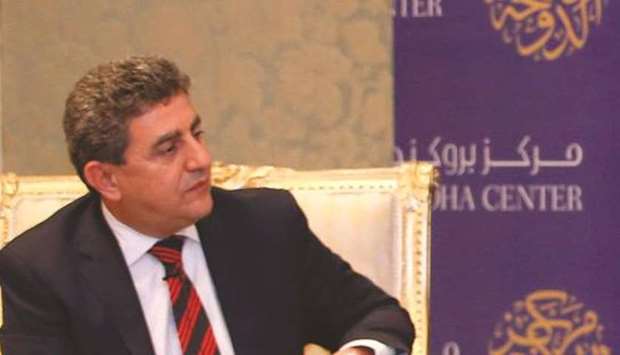The conference is organised by the Centre for Conflict and Humanitarian Studies at the Doha Institute for Graduate Studies in collaboration with the Institute for Peace Studies in Oslo, the Hague Institute for Global Justice, the United Nations Office for the Coordination of Humanitarian Affairs and a German university.
A Doha Institute for Graduate Studies' press release said that the aim of the conference is to examine in detail the concept of localisation of responses to crisis and conflict within the context of the Arab region.
Director of the Centre for Conflict and Humanitarian Studies Dr Sultan Barakat said that the conference is a first of its kind to explore the concept of "localisation of responses" from a multi- and inter-disciplinary perspective in relation to the humanitarian, and developmental issues that the Arab world faces.
Barakat pointed out that more than 180 papers were submitted, of them 25 papers were selected after being reviewed and will be published in a later scientific journal.
He added that the conference tried to shed light on the local component in terms of better understanding of local culture and its impact on conflict resolution, good management of human resources and distribution of humanitarian assistance in a way that preserves the dignity of the affected people, pointing out that the Istanbul Summit in May 2016 stressed the importance of localisation of local work.
For his part, HE the UN Secretary-General's Humanitarian Envoy Dr Ahmed bin Mohamed al-Muraikhi called for understanding the needs and culture of people affected by crises and conflicts in order to maximise humanitarian assistance and prevent their waste, pointing to the importance of cooperation and coordination with local actors and partners to achieve this for the sake of peoples.
al-Muraikhi highlighted the importance of taking into account a number of key points in providing humanitarian assistance to the people, and linking them to what is known as the localisation of humanitarian action and enhancing its effectiveness through local partners within societies affected by crises and conflicts.
He underlined the need to understand the needs and culture of peoples so that the maximum benefit from humanitarian assistance can be achieved and to avoid waste by providing assistance that does not meet the actual needs of these communities or conflicts with their culture, stressing the importance of respecting the dignity of the people and providing the best possible assistance.
This should be through certain mechanisms and in advance co-ordination with the main actors in these communities to know their needs and the most appropriate ways to meet them.
Al-Muraikhi also stressed the need to take into account the development aspect in providing humanitarian assistance to deal with conflicts and crises in the long term in order to sustain such assistance, in co-operation with local partners to identify priorities and develop plans and mechanisms and ways to achieve and follow-up the goals.
He called for taking advantage of the youth energies in the local communities, and giving them the opportunity to participate in humanitarian work.
Al-Muraikhi pointed to the importance of relying on local leaders within the affected communities and their help in identifying priorities and needs and chart a road map to achieve the greatest return of humanitarian assistance for the benefit of local communities.

